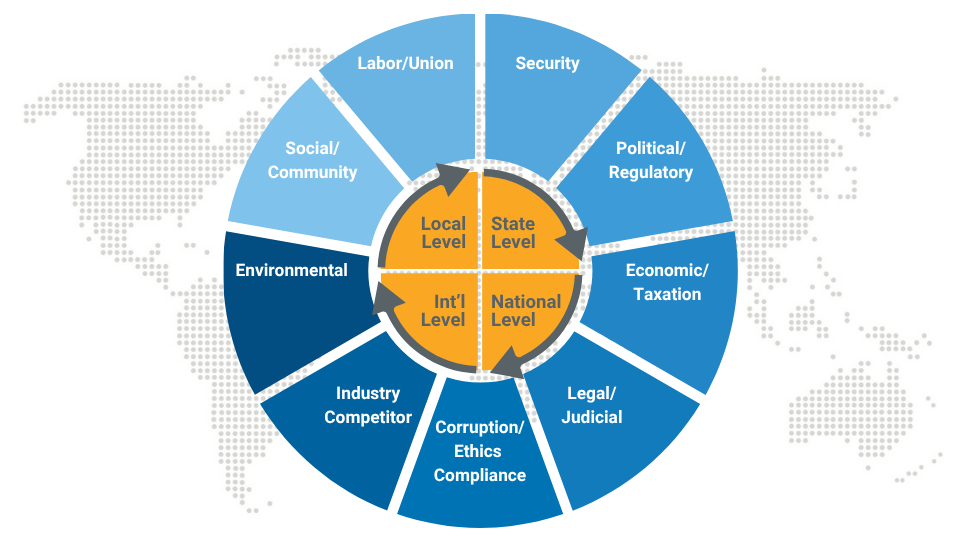Risk Factors

Assess, mitigate, or manage security risk to employees, operations, and supply chains, such as of theft and sabotage.
Track policy, regulations, and legislative initiatives at all government levels that can impact client interests and complement government-relations programs.
Monitor, mitigate, and manage taxation risks to clients and their interests—including, for instance, overzealous tax audits, drawn-out withholding of tax returns, or the levy of new or increased taxes.
Monitor and track national and international legal proceedings, targeting or impacting specific industries, clients, or client competitors.
Identify existing or potential sources of corruption and ethics compliance so that clients can continually adapt and strengthen their corporate ethics policies and measures.
Competitor experiences and challenges are often leading indicators for identifying emerging risks or threats to client interests.
Identify existing or potential environmental risks and recommend and assist with the implementation of measures or programs to manage or mitigate those risks.
Conduct stakeholder mapping and social baseline studies to inform the development and implementation of successful community relations and CSR programs.
Monitor labor and intra- and-inter-labor union dynamics, which can impact costs and operational certainty.
Risk Mitigation and Management Strategies
Importantly, in addition to identifying and assessing operational risks, we also develop and recommend strategies to assist clients in mitigating risks or managing them, if they have already manifested. These include:
-
Integrated management systems that incorporate environmental, corporate social responsibility, health and safety, and security components that are “fit for purpose.”
-
Assimilation of the Voluntary Principles on Security and Human Rights.

